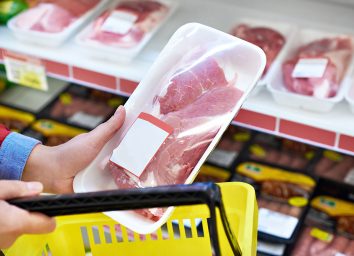Ways Eating Protein Can Help You Lose Weight, Say Dietitians
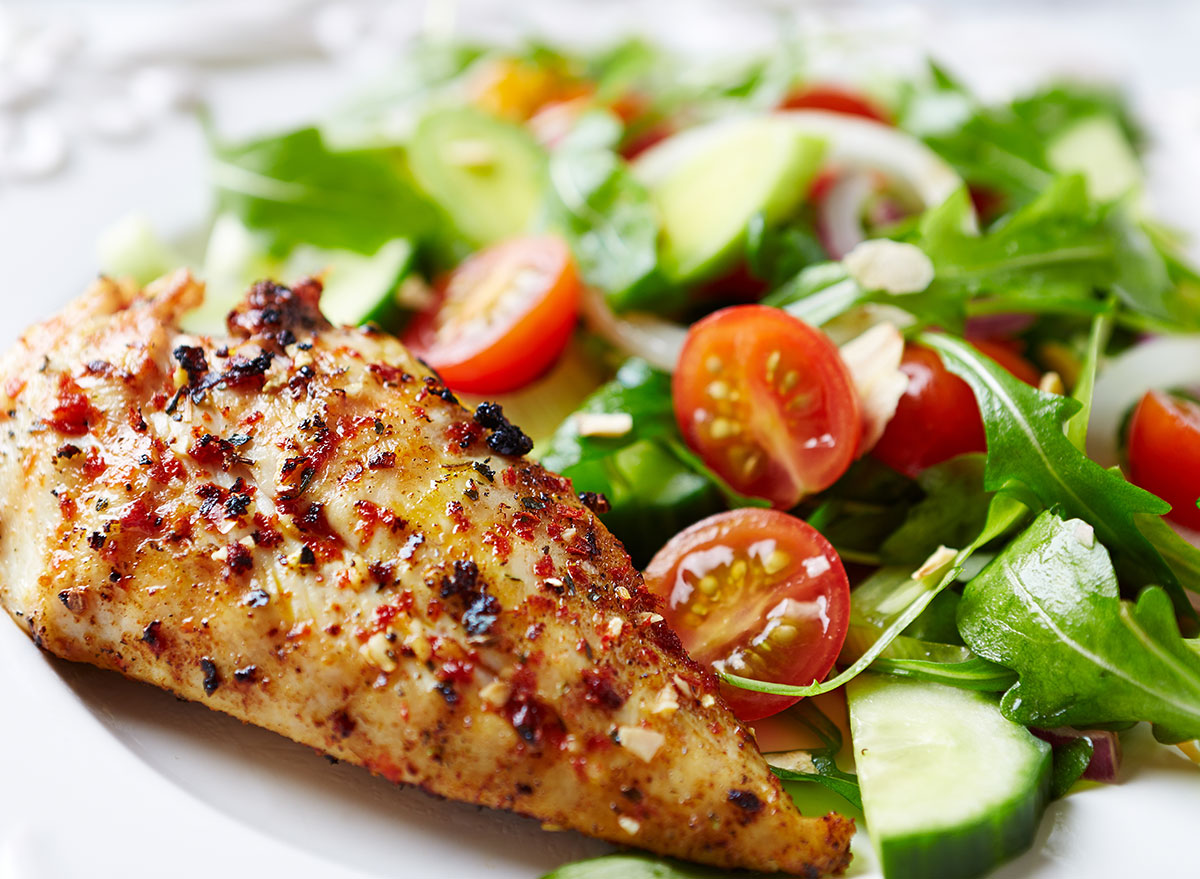
When you're trying to lose weight, staying active matters. However, you could run five miles daily and never drop a pound if you don't change your eating habits. One of the most effective ways to drop pounds is through macro-tracking, which challenges you to eat a balanced amount of carbohydrates, protein, and fat. Often, people may discover they've been consuming plenty of fat and carbs, but they're far behind on protein intake. By eating the right amount of protein, many see results and finally can lose weight. Here's, why eating this specific nutrient could be the missing link in your dieting plan, and for even more weight loss tips, be sure to check out our list of 15 Underrated Weight Loss Tips That Actually Work.
Protein can help satisfy your hunger.
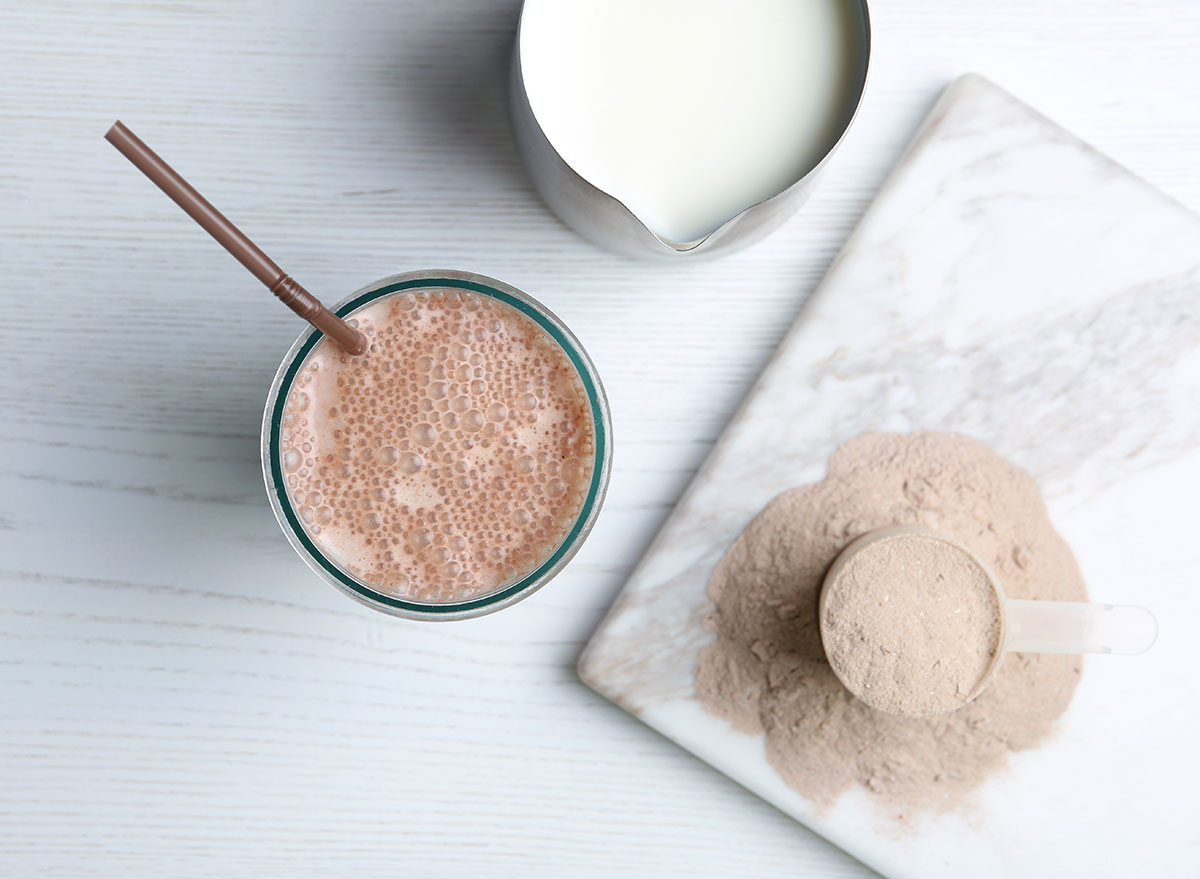
While it's essential to remember carbohydrates are not the enemy, it's also true that some are better than others. When trying to lose weight, many people cut back on carbs, particularly those in the form of desserts or other sweet treats. Though this is positive, it requires our bodies to adjust to a new way of digesting, explains Keith-Thomas Ayoob, EdD, RD, FAND, an associate clinical professor emeritus at the Albert Einstein College of Medicine. In other words: you may get hungrier faster, but you can fight against this by upping your protein intake. How come? Protein takes longer to digest than carbs, so it stays in your stomach longer, keeping you feeling full.
"Hunger isn't the only reason people eat, of course, but it's a major one, and when you're on a weight loss diet, you're eating fewer calories than you're used to, so it's common to feel hungry," says Ayoob. "The extra protein can help out here."
Here's The Wrong Amount of Protein to Eat Every Day, Says Dietitian.
It can help you balance hormones.
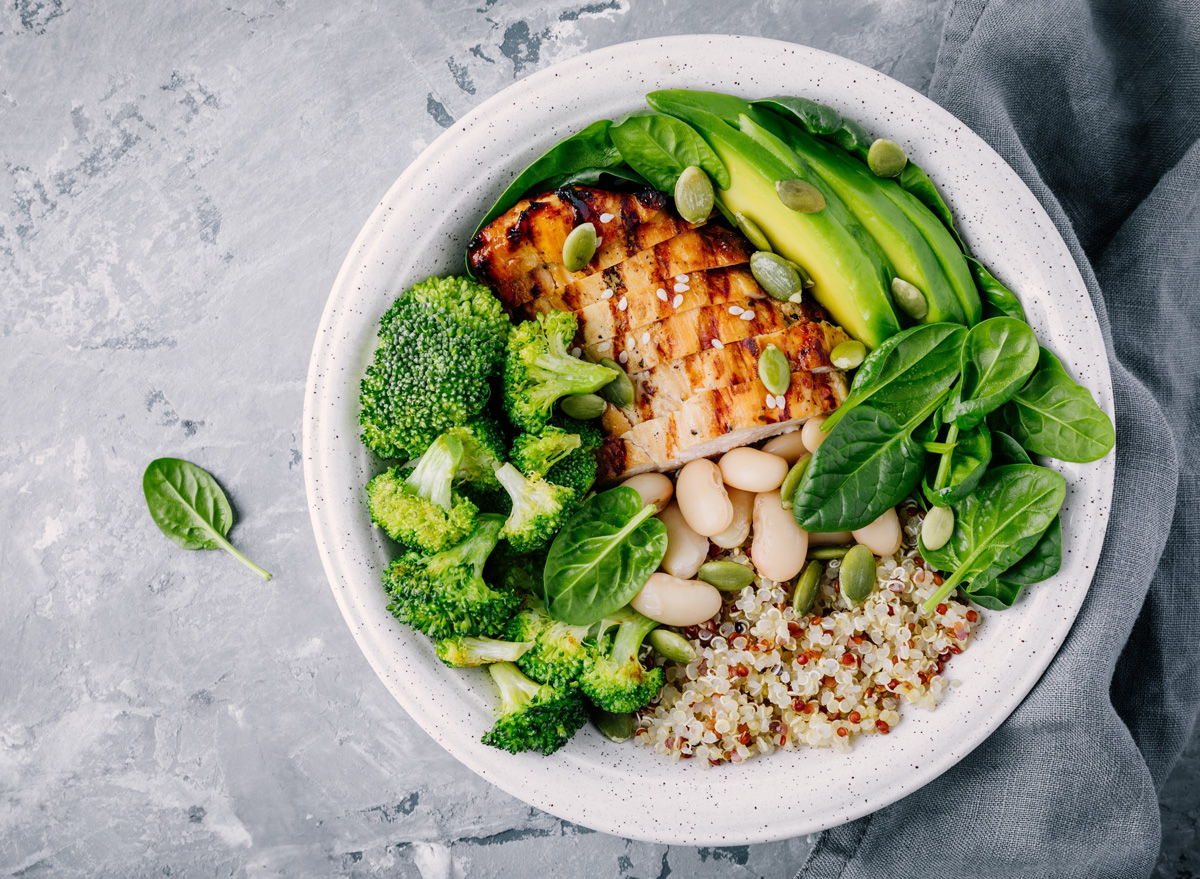
If you're struggling to see a difference on the scale, there could be many aspects at play. One of the most significant—and yet, often overlooked—are our hormones. When these are off-kilter, it can impact our mood and our ability to lose weight.
"An imbalance in your hormone levels can affect hunger and fat storage," says nutritionist and celebrity chef Serena Poon. "A protein-rich diet has been shown to increase the activity of leptin, a hormone that regulates body weight, fat mass, and appetite."
Plus, she explains high-protein meals have also been shown to suppress another hormone, ghrelin (often called the hunger hormone), which increases feelings of satiety.
Here are 19 High Protein Breakfasts That Keep You Full.
Protein helps to blunt the rise in blood glucose after a meal.
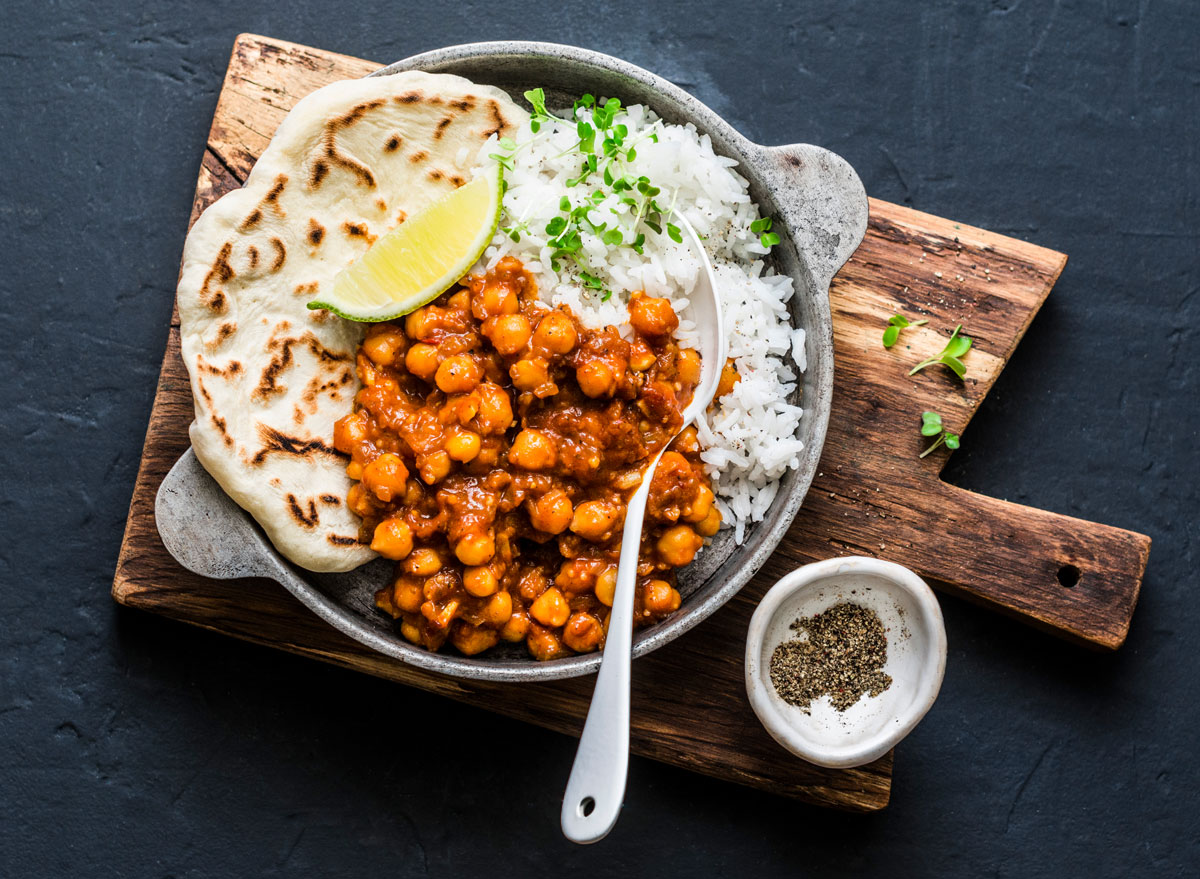
During a meal, you may feel excited, happy, and satisfied. But quickly after, do you feel sad? Or otherwise, meh? Often, this can be attributed to what we're eating since it's tied to our blood glucose levels. As Ayoob explains, when our blood glucose rises too quickly after a meal, it set us up for a crash, leaving us to feel depleted and moody. And sometimes, cause us to binge on foods we wouldn't normally eat (or the sweet ones we're trying to avoid). That's where protein can be game-changing since it blunts the rise of blood glucose after a meal, regulating our systems.
Related: Get even more healthy tips straight to your inbox by signing up for our newsletter!
A protein-filled diet can help you lose fat.
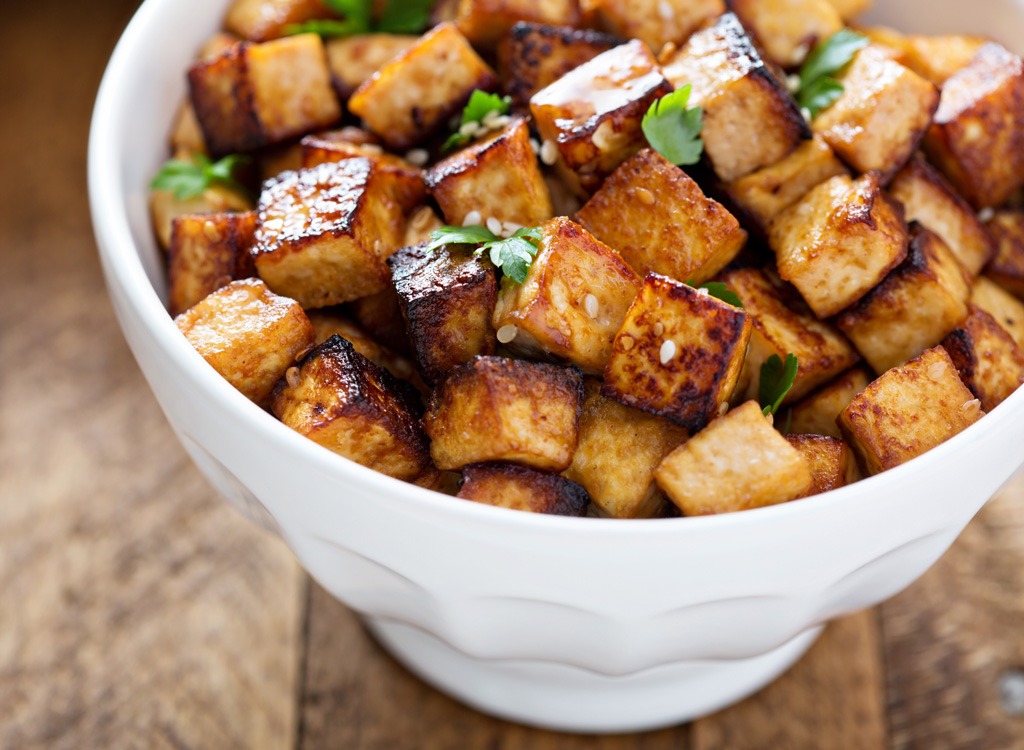
When you lose weight, it isn't easy to control where it comes from: while others see a difference in their faces, some lose their backends fast. However, Poon says protein can help you lose weight when you want to drop it: your fat cells.
"Your body is made up of two different kinds of masses: fat mass, which is composed of fat, and lean mass, which is composed of muscle, organs, and bones," says Poon. "When you lose weight, it is ideal that you lose fat mass as opposed to muscle."
She says studies show that eating a diet that focuses on protein and fiber can help you lose the most fat mass. Here are 9 Warning Signs You're Not Eating Enough Fiber.
Protein calories are burned more efficiently than other types of calories.
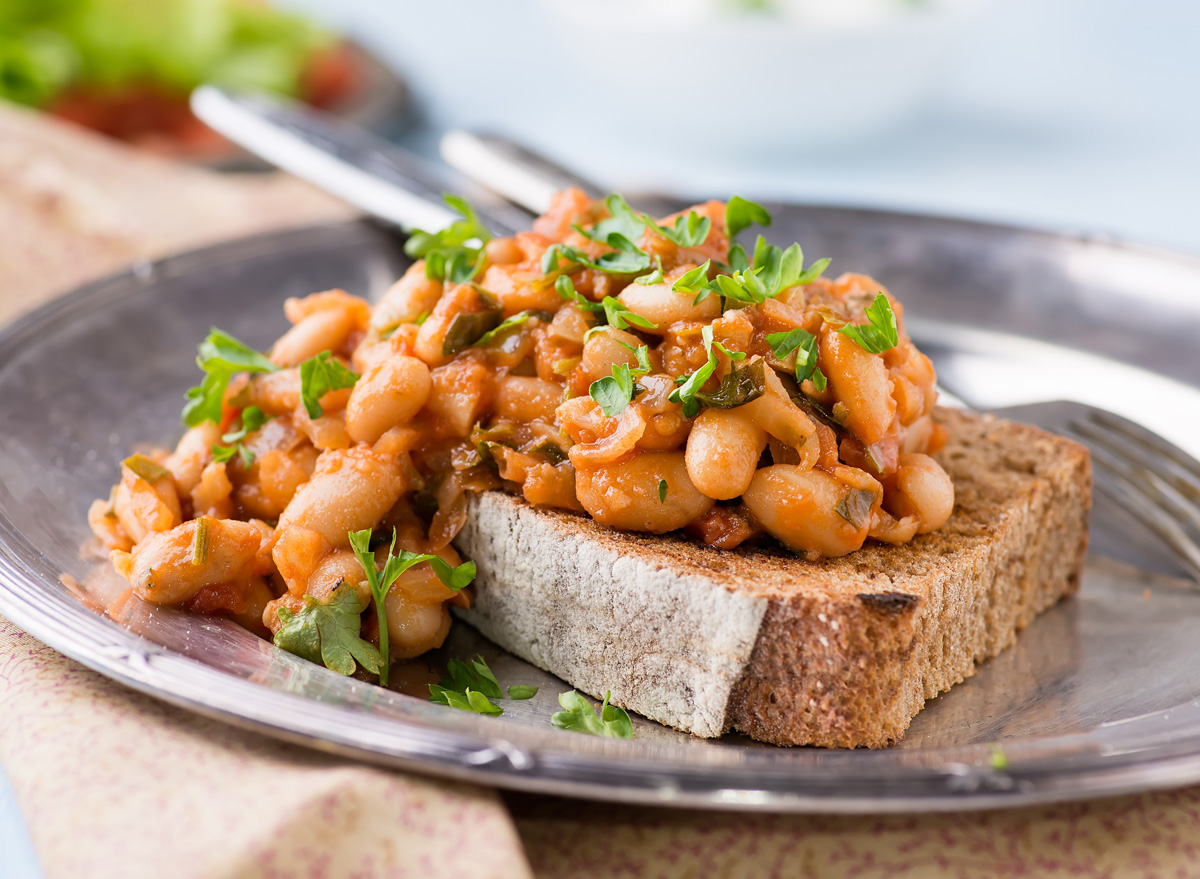
Weight loss coach Stephanie Mansour says protein calories are burned more efficiently than other types of calories. What does this mean? About 20% to 30% of calories from protein are burned while your body is digesting the protein you consumed. This means while you're simply standing still or walking around.
"Although other types of calories function similarly, this rate is particularly high for protein calories," says Mansour. "Because these calories are burned during digestion, eating more proteins means burning more calories."
It can help you build muscle.
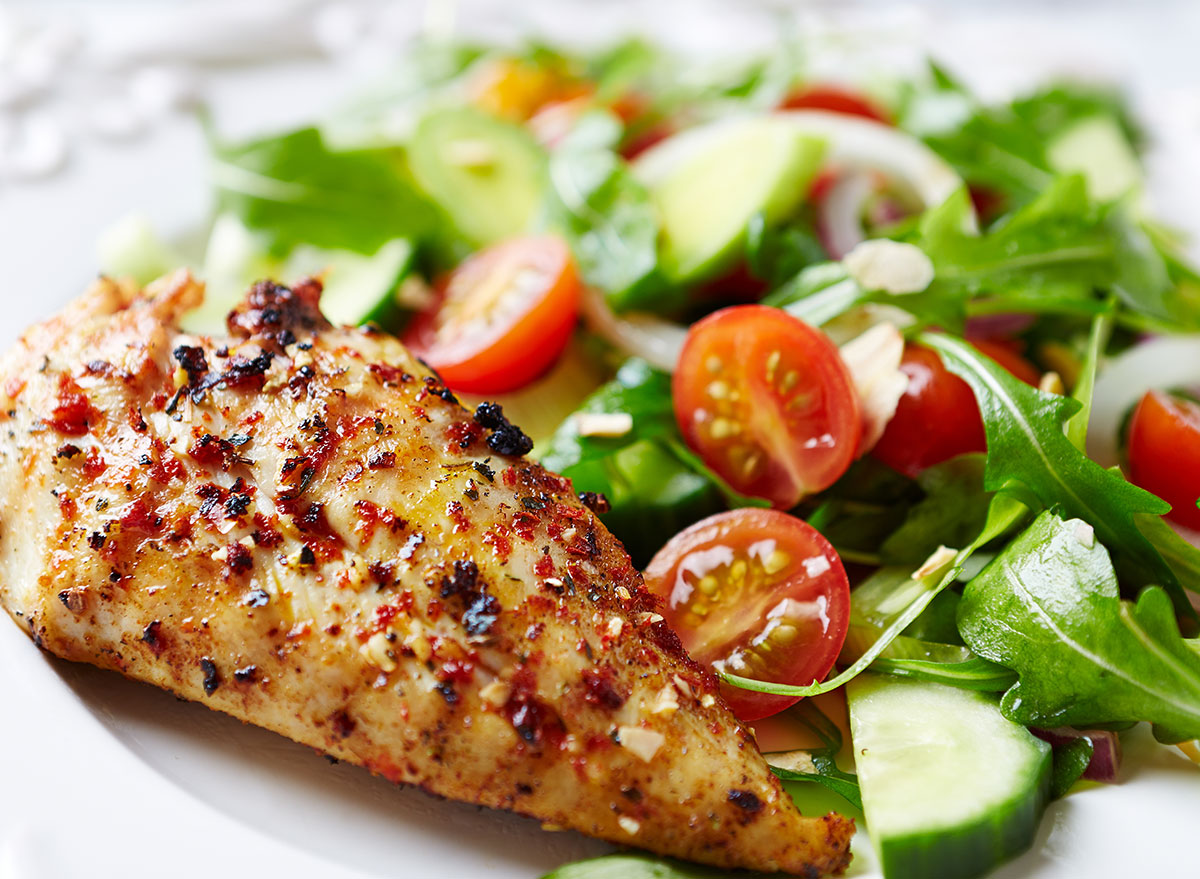
If you're not only hoping to lose weight but to turn it into toned, lean muscle, Poon says protein is the ticket. As she explains, when you blend exercise with thoughtful protein consumption, and you can shift your body composition.
"Combined with strength training, a protein-rich diet can help you build more muscle," says Poon. "Though many women avoid weight training for fear of bulk, it can support health in many ways, including weight loss."
Incoporate more protein into your diet with The Best Forms of Lean Protein You Can Eat.
